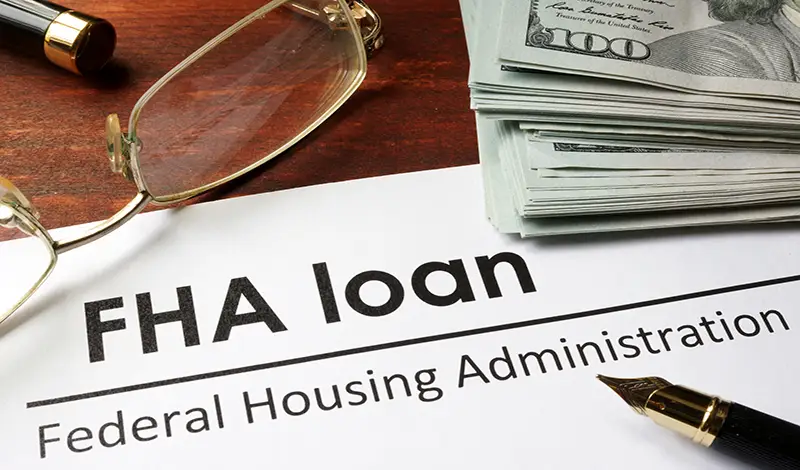FHA vs Conventional Loan
Published on March 26, 2024 | 5 Minute read

Melanie
Ortiz Reyes
Content Specialist
When it comes to financing a home purchase, borrowers often find themselves deciding between FHA (Federal Housing Administration) loans and conventional loans. Each option has its own set of advantages and disadvantages, making it essential for prospective homebuyers to understand the key differences.

Understanding FHA Loans
FHA loans are government-backed mortgage loans insured by the Federal Housing Administration, making them popular among first-time homebuyers and those with less-than-perfect credit scores. The primary advantage of FHA loans is their lenient eligibility criteria, including lower down payment requirements and more flexible credit score thresholds. Borrowers can qualify for an FHA loan with a credit score as low as 580 and a down payment as low as 3.5% of the home's purchase price.
Pros of FHA Loans
- Lower down payment requirements - FHA loans offer lower down payment options, making homeownership more accessible to buyers with limited savings.
- Flexible credit score requirements - Borrowers with less-than-perfect credit scores can qualify for FHA loans, providing opportunities for individuals with past credit challenges.
- Competitive interest rates - FHA loans often feature competitive interest rates, particularly for borrowers with lower credit scores.
- Streamlined refinancing options - FHA loans offer streamline refinancing programs, allowing borrowers to refinance their existing FHA loan with minimal documentation and underwriting requirements.
Cons of FHA Loans
Mortgage insurance premiums (MIP): FHA loans require upfront and annual mortgage insurance premiums, increasing the overall cost of homeownership.
- Loan limits - FHA loans have maximum loan limits that vary by location, potentially limiting borrowing options for higher-priced properties.
- Property requirements - FHA loans impose specific property requirements, such as minimum property standards, which may restrict the types of homes eligible for financing.
- Limited flexibility - FHA loans may have more stringent appraisal and underwriting guidelines compared to conventional loans, leading to potential delays in the loan approval process.

Understanding Conventional Loans
Conventional loans are mortgage loans not insured or guaranteed by the government. These loans are typically offered by private lenders and are subject to the lending standards set by Fannie Mae and Freddie Mac. While conventional loans often require higher credit scores and larger down payments compared to FHA loans, they offer greater flexibility and fewer restrictions for qualified borrowers.
Pros of Conventional Loans
- No mortgage insurance requirement - Conventional loans do not require upfront or annual mortgage insurance premiums for borrowers who make a down payment of at least 20% of the home's purchase price.
- Higher loan limits - Conventional loans have higher maximum loan limits than FHA loans, allowing borrowers to finance more expensive properties.
- Flexible property requirements - Conventional loans offer greater flexibility in property eligibility criteria, making them suitable for a wider range of homes.
- Competitive interest rates - Qualified borrowers may qualify for competitive interest rates on conventional loans, particularly those with excellent credit scores and strong financial profiles.
Cons of Conventional Loans
- Higher down payment requirements - Conventional loans typically require larger down payments compared to FHA loans, potentially limiting homeownership opportunities for buyers with limited savings.
- Stricter credit score requirements - Conventional loans often require higher credit scores for approval, making them less accessible to borrowers with lower credit scores.
- Private mortgage insurance (PMI) -Borrowers who make a down payment of less than 20% of the home's purchase price may be required to pay private mortgage insurance, increasing their monthly housing costs.
- Stringent underwriting standards - Conventional loans may have stricter underwriting guidelines compared to FHA loans, leading to more extensive documentation and verification requirements for borrowers.

Differences between FHA and Conventional Loans
- Mortgage Insurance - FHA loans require both upfront and annual mortgage insurance premiums, while conventional loans may require private mortgage insurance (PMI) for borrowers who make smaller down payments.
- Credit Score Requirements - FHA loans have more lenient credit score requirements, allowing borrowers with lower credit scores to qualify, whereas conventional loans typically require higher credit scores for approval.
- Down Payment - FHA loans offer lower down payment options, with minimum down payments as low as 3.5%, whereas conventional loans may require down payments of at least 5% to 20% of the home's purchase price.
- Loan Limits - FHA loans have maximum loan limits set by the FHA, while conventional loans may offer higher maximum loan amounts, particularly for borrowers with strong financial profiles.
Choosing between FHA and conventional loans requires careful consideration of individual financial circumstances, credit history, and homeownership goals. While FHA loans offer accessibility and flexibility for buyers with lower credit scores and smaller down payments, conventional loans provide advantages such as no mortgage insurance requirements and higher loan limits for qualified borrowers. By understanding the pros, cons, and differences between FHA and conventional loans, borrowers can make informed decisions to achieve their homeownership dreams.